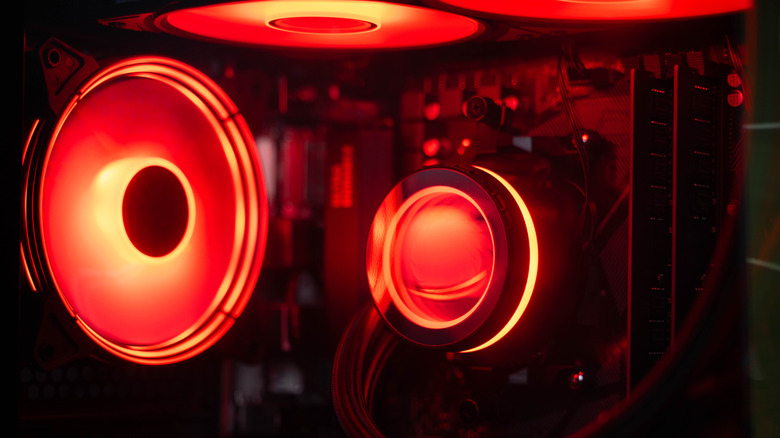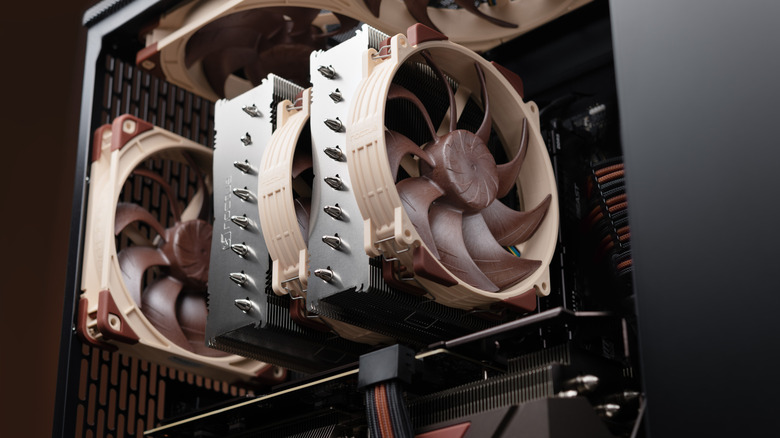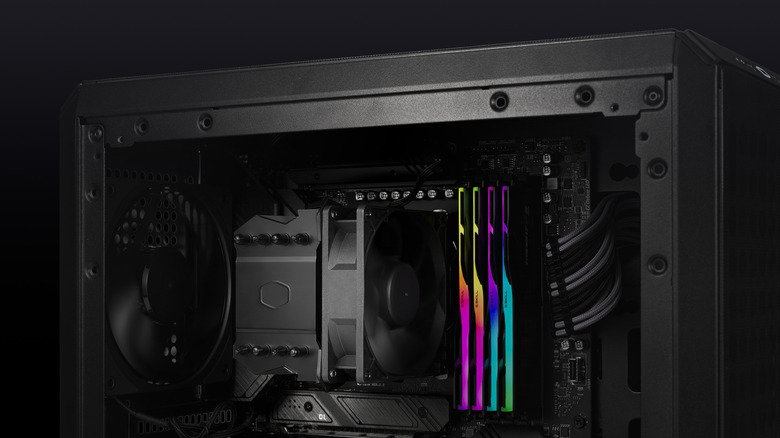Why You Should Think Twice About Water Cooling Your PC
Every PC needs some kind of cooling mechanism to transfer heat away from the processor, at which point you'll need to choose between air cooling and liquid cooling. As a PC enthusiast who builds my own systems and has advised on plenty of others, I've noticed that a lot of people go straight for water cooling simply because they've heard it's better. Thanks to the popularity and relative affordability of AIO water coolers, water cooling has become the default for many PC-building enthusiasts. Sure, it's easier than ever to simply slap a liquid cooling system on top of your CPU. There's no mucking around with tanks and pumps, and no danger of spilling cooling solution all over your expensive components. But just because something is technically better on paper doesn't automatically make it the right choice for you.
An air cooler usually consists of both a heat sink and a fan. The heat sink draws heat off the processor, and the fans then blow cool air onto the heat sink, pushing the heat toward your PC's exhaust. Meanwhile, a water cooler continuously cycles water through a loop, with a cold plate that draws heat from the processor and passes it into a pump. Water cycles through the pump to a radiator at the extremity of the PC's case, with fans that blow the heat off the radiator and out of the system. Water cooling is generally regarded as more effective, since the cycling water carries more heat away from the CPU. But not every system needs water cooling, and there are definitely valid reasons to opt out. From price and performance considerations to ease of use and noise, here's why you should think twice about water cooling your PC.
Air coolers are cheap and effective
The main benefit to a water cooler compared to an air cooler on a given processor is additional thermal headroom, which allows you to push more performance before the chip throttles from overheating. This is especially helpful if you're using a high-end CPU and plan to use your PC for CPU-heavy tasks. But if you're building a more modest PC, there's often no reason to spend the extra money on a water cooling system. For example, I opted to water cool my current gaming PC so that I could overclock my Ryzen 9 7950X3D processor, but when I built my dad an office computer with an Intel Core i5 chip, I opted to air cool it, since an AIO would have been overkill.
PC builders on a budget can benefit from skipping a water cooler and opting for a much cheaper air cooler, often without any noticeable difference in the day to day performance of the computer. On average, you'll pay well over $100 for an AIO water cooler at the time of this writing, whereas you can easily pay half that for a very good air cooler. You can either pocket the savings, or spend it on other components like more RAM, storage, a nicer case, or even a slightly better GPU. Alternatively, those savings could help you get a nicer monitor, mouse, or keyboard.
With that said, consider your personal priorities when choosing your PC's cooling solution, and don't be afraid to ask experts for help. From online forums to helpful employees at PC enthusiast stores, there are plenty of people who are qualified to help you determine whether you would truly benefit from water cooling your system.
Air coolers are easier for beginners to install
Another reason you may want to choose an air cooler over a water cooler is that it's much easier to install, especially if you're a novice at PC building. Air coolers are usually a single piece that you simply line up over your CPU and attach to the motherboard with screws. Even this can be a bit tricky for first-time PC builders, since you need to take a lot of factors into account. Making sure your fans are oriented correctly so that air is flowing toward the exhaust, correctly applying thermal paste before installation, and other factors can easily trip people up.
However, water cooling is even more involved. If you're using a custom cooling loop, you've got multiple components to figure out, not to mention a lot of messy liquid that could fry your PC if it spills or leaks. And even with an AIO cooler that comes as a single, factory sealed unit, there are still extra considerations. Mounting the radiator and fans can be tricky, as you need to ensure that your PC case accommodates your radiator size. And then there's the art of orientation, making sure your radiator is placed correctly relative to the pump.
If the PC you're building is using a CPU that would genuinely benefit from water cooling — for example, a powerful gaming CPU like the AMD Ryzen 7 9800X3D or similar alternatives — then it's probably worth taking your time to learn how to properly install a water cooler. There are plenty of guides online, or you could ask an experienced friend for help. But if you're not sure you can handle it, you can't go wrong with a well-reviewed cooler from a major CPU cooler brand.


